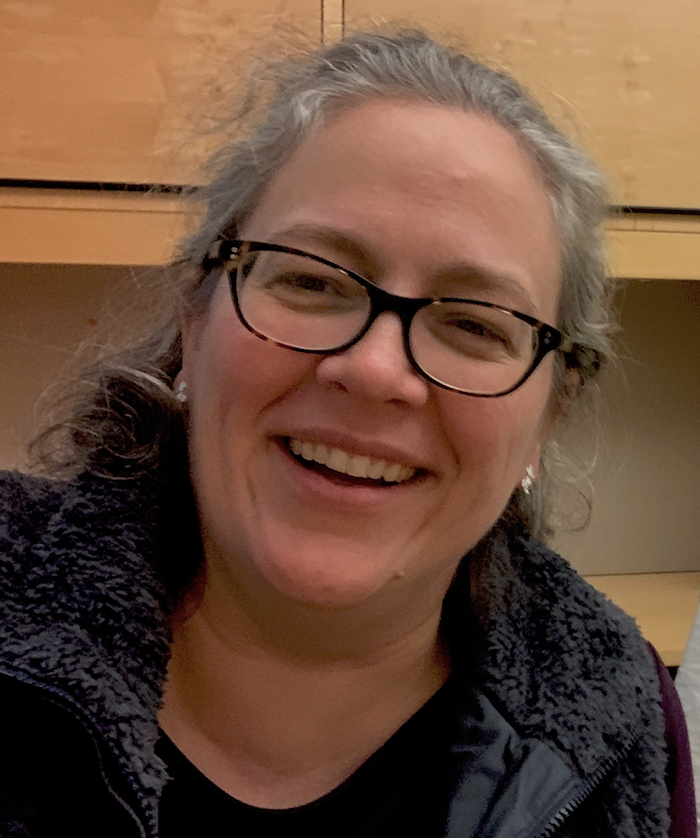
2020.07.30 (木)
Dr. Dumont Sophie UCSF

https://bms.ucsf.edu/people/sophie-dumont-phd
Q1: どんな細胞をメインで観察されていますか?
A: 細胞分裂をしている、ほ乳類の組織細胞をイメージングしています。私たちは細胞が分裂する際に、どのように分裂し、また力に反応しているかを証明するために、ライブセルイメージングと物理的な摂動(細胞閉じ込め、レーザーアブレーション、マニピュレーション)を組み合わせます。
Q2: 現在の研究のゴールは何でしょうか?
A: 私たちはとても正確な哺乳類の染色分離の裏にある物理的定義を発見しようとしています。私たちはほ乳類の染色分離に必要な分子をほぼ全て知っていますが、一方でそれらがどのようにしてこのプロセスを調整する力を生成し、それに反応するかについては、まだよくわかっていません。
Q3: タイムラプスイメージングをされる際はどのようなアプリケーション/顕微鏡観察法で行いますか?
A: 最近は、ほとんどスピニングディスクコンフォーカルを使用しています。
Q4: 最近の気になるトピックはありますか?
A: 個々の分子の力学と細胞の力学と機能との関係性です。
Q1: 東海ヒット製品の気に入っている、もしくは最も使いやすい製品特性は何ですか?
A: ステージトップにおいて安定した培養環境、機器が壊れにくい、また特注の対応が可能である点が非常に気に入っています。
Q2: 東海ヒット製品の実用性、機能、サポート、サービス等についてのどう思われますか?
A: 私たちは東海ヒットの機器を2台保有しています。これらの製品は非常に壊れにくく、また性能も非常に気に入っています。私たちが新しい実験を試したいと考え、相談すると、東海ヒットは、特注や新しい製品を提供して私たちをサポートしてくれます。彼らのサービスは迅速かつ非常に親切であり、且営業担当者がサンフランシスコによく訪問します。私たちは東海ヒットからの返信を24時間以上まったことがありません。
Dr. Dumont Sophie UCSF

https://bms.ucsf.edu/people/sophie-dumont-phd
Q1: What kind of samples do you usually work with?
A: We image live mammalian tissue culture cells undergoing cell division. We often combine live cell imaging with physical perturbations (cell confinement, laser ablation and microneedle manipulation) to probe how cells generate and respond to force as they divide.
Q2: What is your goal in the research that you are working on right now?
A: We are working to define the physical principles behind robust and accurate mammalian chromosome segregation. While we know nearly all the molecules required for mammalian chromosome segregation, we still have a poor understanding of how they together generate and respond to force to coordinate this process.
Q3: What kind of application/microscopy do you use during the time-lapse imaging?
A: Currently, we mostly do spinning disk confocal microscopy.
Q4: What were the subjects/topics that attracted your attention most recently in your filed?
A: The connection between the mechanics of individual molecules and the mechanics and function of cellular machines.
Q1: What is your favorite part about the Tokai Hit system that you own?
A: We love how stable, robust and customizable the Tokai Hit stage top incubators are.
Q2: How do you describe Tokai Hit product performance, features, and services to you?
A: We have two Tokai Hit stage top incubators. We have been very happy with their robustness and performance. Every time we’ve had a new application in mind, Tokai Hit helped us to customize and adapt our incubators. Their customer service is fast and competent, and their reps have visited us often in San Francisco. I don’t think we’ve ever had to wait more than 24h for them to answer our sales or technical support emails.
Dr. Dumont Sophie UCSF

https://bms.ucsf.edu/people/sophie-dumont-phd
Q1: What kind of samples do you usually work with?
A: 我们观察的成像大多是正在经历细胞分裂的哺乳动物的活细胞组织。一般将活细胞成像与物理扰动相结合(限制细胞活动、激光烧蚀和微针操作),以探究细胞分裂时对力产生的反应如何。
Q2: What is your goal in the research that you are working on right now?
A: 我们正在努力定义哺乳动物染色体分离背后的物理原理。尽管我们几乎了解了进行哺乳动物的染色体分离时所需的所有分子,但对它们如何共同产生并互相反应以及协调这一过程仍然知之甚少。
Q3: What kind of application/microscopy do you use during the time-lapse imaging?
A: 目前,我们主要使用转盘式激光共聚焦显微镜进行观察。
Q4: What were the subjects/topics that attracted your attention most recently in your filed?
A: 单个分子的力学与细胞力学・功能之间的关系。
Q1: What is your favorite part about the Tokai Hit system that you own?
A: 我们喜欢东海希多的显微镜用活细胞培养系统的稳定性、坚固性和可定制服务。
Q2: How do you describe Tokai Hit product performance, features, and services to you?
A: 我们现在有两套东海希多的显微镜用活细胞培养系统,对这些设备的坚固性和性能感到非常满意。每当我们想到一个新的实验时,东海希多就能帮助我们定制和调整新产品。他们的客户服务是快速而且很亲切,他们还会经常来旧金山拜访我们。我们还没有遇到过为了收取东海希多的邮件,而等待24小时以上的情况。
